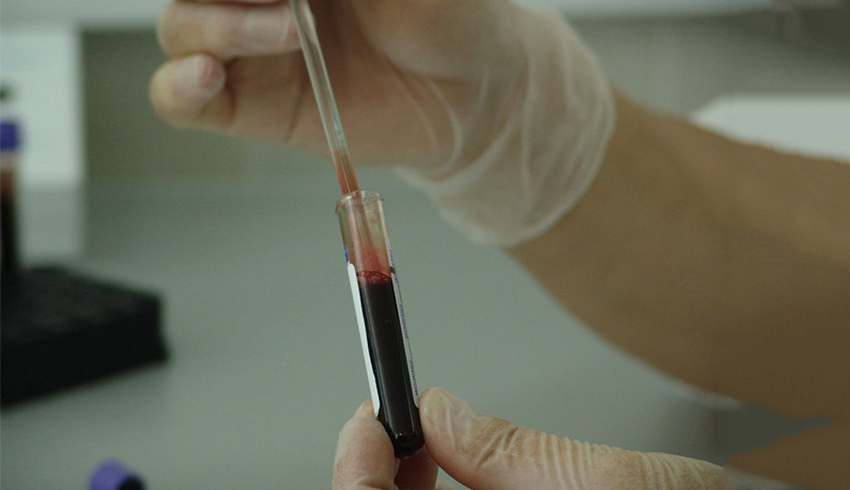Blog
Infertility: Reasons & Precautions

Moving on to the wheels of the 21st century, infertility has become very common these days. Being an infertile couple or person doesn’t make you any lesser than being a good human being. If you and your partner are trying to have a baby and if you aren’t succeeding, I swear you are not alone. Hell, the number of couples like you are out in the world. It’s okay to be infertile and society has no right to judge you in terms of your weak points. Now, coming to infertility it can be due to some genetic issues or your filthy lifestyle. You can fight infertility on your own until a point. Infertility may result from an issue with either you or your partner or a combination of factors that prevent pregnancy. Fortunately, there are many safe and effective therapies that significantly improve your chances of getting pregnant.
Getting in detail about infertility the first thing is, a woman must produce and release a healthy egg from one of her ovaries which we call ovulation. A man must produce viable sperm that can successfully fertilize the woman’s egg which is known as fertilization. The egg must travel through a fallopian tube toward the uterus and the fertilized egg must attach to the inside of the uterus. These are the important things required for a couple to get pregnant.
As we say ladies first, let’s see what are the factors that hinder women from getting pregnant. One of the main reasons that can cause infertility in women is the hormone imbalance. When hormone disorders are present, problems with ovulation can occur. These can be due to the lack of the necessary synchronized hormonal changes leading to the release of an egg from the ovary. The thyroid gland is a villain in terms of female infertility. Either too much thyroid hormone or too little thyroid hormone can interfere with the menstrual cycle or cause infertility. Apart from the Thyroid gland the other gland disorders or hormone disorders include polycystic ovarian syndrome (PCOS), or problems with the hypothalamus, pituitary gland, adrenal gland. PCOS is very common these days and it can even begin after menarche itself. Benign growths (such as polyps and fibroids) in the uterus, blocked fallopian tubes, abnormal anatomy of the cervix or uterus, endometriosis, scar tissue, diminished ovarian reserve, premature menopause or primary ovarian insufficiency, changes in egg quality or quantity can affect fertility. Other additional factors that can cause infertility are Sickle cell disease, Kidney disease, Celiac disease, Diabetes, etc. These all can hinder females from reproducing.
Now let’s have a look at the factors that cause infertility in men. Low sperm count or abnormal sperm function is the main reason that affects fertility in men. This may be caused by different things. These include undescended testicles, genetic defects/DNA damage, Diabetes, prior bacterial or viral infections such as mumps or adenovirus, Trauma or prior surgeries on the testicles or inguinal region, enlarged veins in the testes that can increase blood flow and heat, both of which affect the number and shape of the sperm, exposure to chemicals like pesticides, radiation, and chemotherapy, Overexposure to heat (such as in saunas and hot tubs), surgical removal of one of the testicles due to cancer, Damage or injury to the reproductive organs, semen entering the bladder instead of emerging through the penis during orgasm and certain genetic diseases (such as cystic fibrosis).
All these are some reasons for you and your partner to get infertile. But if you take some preventions and treatments infertility can be fought. Let me help you with some tips to fight infertility. Good nutrition is vital for a healthy body and reproductive system. There are some natural ways to boost fertility and get pregnant faster. Antioxidants like folate and zinc may improve fertility for both men and women. Antioxidant-rich walnuts per day improve sperm quality. Foods such as fruits, vegetables, nuts, and grains are packed full of beneficial antioxidants like vitamins C and E, folate, beta-carotene and lutein. Eating a substantial breakfast may help women with fertility problems. Eating healthy fat every day is important for boosting fertility. However, trans fats are associated with an increased risk of ovulatory infertility, due to their negative effects on insulin sensitivity. Exercise has many benefits for your health, including increased fertility. As your stress levels increase, your chances of getting pregnant decrease. This is likely due to the hormonal changes that occur when you feel stressed. Take time to relax. Above all, alcohol consumption, marijuana use, tobacco smoke, and steroid use can negatively affect fertility. The most important of all is to take an infertility test at the right time. If you have been trying for a month to conceive and you aren’t succeeding, it’s high time to see your Gynaecologist and take your infertility test .Do not wait one more year to check. The faster you treat the faster is your result. Take a little precaution to avoid a lifetime sorrow.










